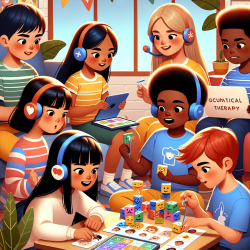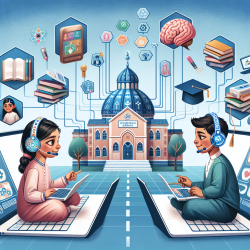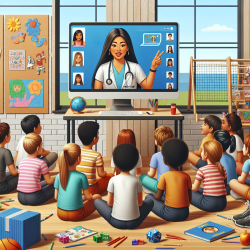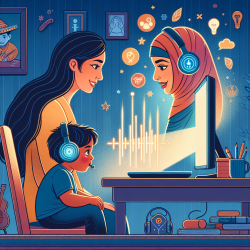As a speech-language pathologist, you understand the importance of fostering social-emotional skills in children. A recent study titled A Pilot Study of Improving Self-Regulation and Social Interaction with Peers: An “Exciting School” offers promising insights into how self-regulation programs can enhance peer interactions and emotional understanding among school-aged children. Here, we explore the key findings and discuss how you can implement these strategies in your practice.
Why Focus on Self-Regulation?
Self-regulation is a cornerstone of socio-emotional competence, crucial for academic success and mental health. The study found that a structured self-regulation program significantly improved social interaction skills in neurotypical children. Here's why this matters:
- Enhanced Emotional Awareness: Children learn to identify and understand their emotions and those of others.
- Improved Social Skills: Better peer interactions lead to more stable relationships and effective problem-solving skills.
- Academic Success: Enhanced concentration and emotional regulation positively impact learning outcomes.
Key Findings from the "Exciting School" Program
The study involved 107 children who participated in a 10-week self-regulation program. The results were telling:
- Statistically Significant Improvement: Neurotypical children showed notable gains in peer interaction skills, including assertiveness, empathy, and conflict resolution.
- Parental Satisfaction: Parents reported better emotional understanding and self-regulation in their children at home.
- Inclusive Approach: Although children with special educational needs did not show significant changes, the program highlighted the need for tailored interventions.
How to Implement These Strategies in Your Practice
Based on the study's outcomes, here are actionable steps you can take:
- Incorporate Structured Programs: Implement self-regulation programs that include activities like role-playing, storytelling, and interactive quizzes.
- Engage Parents: Use blogs, videos, and workshops to involve parents, ensuring skills are practiced at home.
- Tailor Interventions: Customize strategies for children with special educational needs to address their unique challenges.
Encouraging Further Research
While the "Exciting School" program shows promise, more research is needed to validate its long-term effectiveness. Consider collaborating with educational institutions to conduct longitudinal studies and develop more comprehensive programs.
To read the original research paper, please follow this link: A Pilot Study of Improving Self-Regulation and Social Interaction with Peers: An “Exciting School”.










